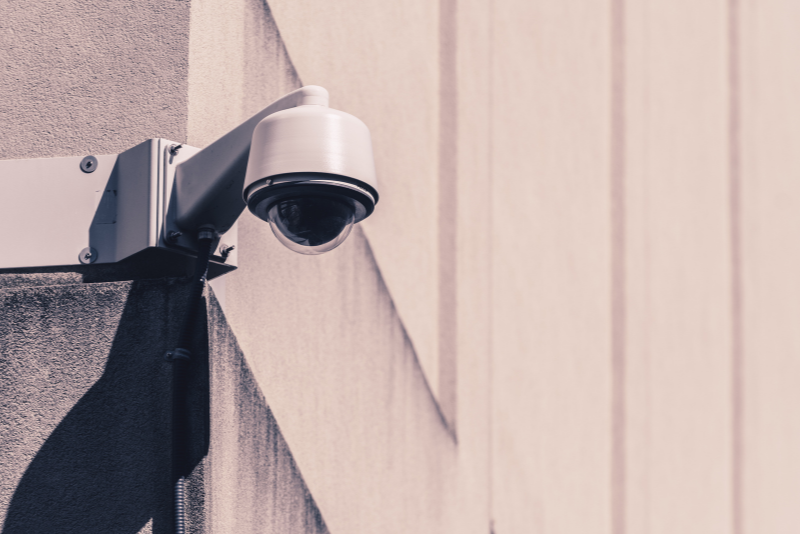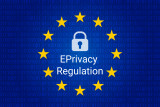GDPR and CCTV monitoring part - 2

GDPR and CCTV monitoring part - 2
Continuation of the article: GDPR and CCTV monitoring part - 1
Public space can be monitored too
Sometimes there can be a thin line between recording private land and public space. In the Czech Republic, there was a case where one man installed cameras because his private property was damaged by a strange person. It would not be anything exceptional, but the camera also took part of the sidewalk in its field of view, which is part of the public space. The case went to court and the person who damaged the property questioned the legal framework for monitoring public space.
Protection of property and monitoring of the area where the property is located is possible on the basis of GDPR legislation. The European Court of Justice has ruled that this robbed man does not have to pay a fine. That's because he helped clarify the crime. The judgment states that failure to commit a criminal offense would violate the legislation on personal data protection.
Municipalities or even cities monitor their territory
It is not uncommon for a city or municipality to record their property with a camera and protect the streets from vandals or thieves. Thanks to such technologies, public order can be more easily ensured. The GDPR legislation gives them such power on the basis of Art. 6 par. 1 letter e) of the GDPR Regulation - for the purpose of fulfilling a task performed in the public interest or in the exercise of public power.
The employer can monitor the workplace
It is no exception that an employer makes records of situation on their workplace. If the employer decides to monitor the employees in order to control the performance of his work, he or she should take into account the general regulation of the protection of persons, but also the special legislation contained in the Labor Code.
Act § 13 par. 4 of the Labor Code is the legislative basis for the handling of personal data and talks about: „The employer may not without serious reasons based on the specific nature of the employer's activities, infringe on the employees' privacy at the workplace and in the employer's common areas by monitoring them, recording telephone calls made by the employer's technical work equipment and checking e-mail sent from and delivered to the work e-mail address. If the employer implements a control mechanism, they are obliged to discuss with the employees' representatives the scope of the control, the method of its implementation, as well as its duration and inform the employees about the scope of the control, the method of its implementation and its duration.“
It is necessary and enshrined in law for the employer to inform the employees if he or she wants to monitor them. The employer must have good reasons for such monitoring.
However, we may also encounter the possibility that the employer performs covert monitoring. An interesting case of Kopke against Germany occurred at the European Court of Human Rights. It is questionable whether such covert monitoring is justified, but it is necessary to re-evaluate the size of the invasion of the worker's privacy, the purpose of the monitoring and it is necessary to evaluate the circumstances of the case.
What to watch out for in video monitoring
When creating a record, it is always necessary to think about whether GDPR legislation applies to us or not. Some cases, as mentioned in the article, have exceptions. If the application of GDPR legislation needs to be applied, it is necessary to focus on:
- informing persons who are recorded, for example, by a notice that the object is monitored by a camera system,
- defining the legal basis in relation to processing,
- defining the purpose of personal data processing, for example, protection of property.
Vyhľadávanie
Most read articles
Categories
Recently added articles
Popular tags
Contact form
Preparation of Security Documentation in terms of GDPR from 139€ with insurance.
- Infoline:
- E-mail:
osobnyudaj.sk, s.r.o. Námestie osloboditeľov 3/A,
040 01 Košice
Non-binding free quote
from € 139 with insurance
We have provided services
to more than
11 500 clients
Questions and answers
Dear client, if you have not found
what you are looking for, do not hesitate
to contact us.
-
What is GDPR?
-
General Data Protection Regulation (GDPR) is the acronym for Regulation…
Find out more
-
-
Who is affected by the GDPR?
-
It applies to all persons processing personal data and any…
Find out more
-
-
What changes come with the GDPR?
-
The fundamental changes of the GDPR include: compulsory appointment of…
Find out more
-
-
Who is Data Protection Officer (DPO)?
-
All organizations processing personal data must count on the appointment…
Find out more
-
-
What happens if I do not comply with GDPR?
-
In the event of a breach of the GDPR regulation,…
Find out more
-
-
How can we help you?
-
Osobnyudaj.sk, s.r.o. is the largest provider of personal data protection…
Find out more
-
-
What are advantages of working with our company?
-
personal visits throughout the Slovak Republic are a matter of…
Find out more
-
-
What is personal data?
-
For the purposes of the GDPR, all information relating to…
Find out more
-
-
Who is Data Protection Officer?
-
All organizations processing personal data must count on the appointment…
Find out more
-




